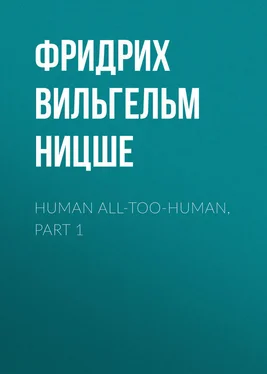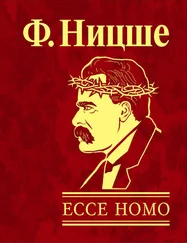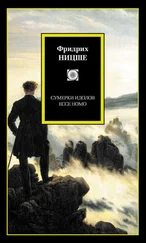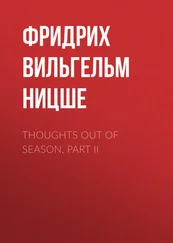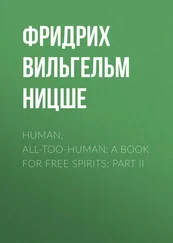Фридрих Ницше - Human All-Too-Human, Part 1
Здесь есть возможность читать онлайн «Фридрих Ницше - Human All-Too-Human, Part 1» — ознакомительный отрывок электронной книги совершенно бесплатно, а после прочтения отрывка купить полную версию. В некоторых случаях можно слушать аудио, скачать через торрент в формате fb2 и присутствует краткое содержание. Жанр: Философия, literature_19, foreign_antique, foreign_prose, на английском языке. Описание произведения, (предисловие) а так же отзывы посетителей доступны на портале библиотеки ЛибКат.
- Название:Human All-Too-Human, Part 1
- Автор:
- Жанр:
- Год:неизвестен
- ISBN:нет данных
- Рейтинг книги:4 / 5. Голосов: 1
-
Избранное:Добавить в избранное
- Отзывы:
-
Ваша оценка:
- 80
- 1
- 2
- 3
- 4
- 5
Human All-Too-Human, Part 1: краткое содержание, описание и аннотация
Предлагаем к чтению аннотацию, описание, краткое содержание или предисловие (зависит от того, что написал сам автор книги «Human All-Too-Human, Part 1»). Если вы не нашли необходимую информацию о книге — напишите в комментариях, мы постараемся отыскать её.
Human All-Too-Human, Part 1 — читать онлайн ознакомительный отрывок
Ниже представлен текст книги, разбитый по страницам. Система сохранения места последней прочитанной страницы, позволяет с удобством читать онлайн бесплатно книгу «Human All-Too-Human, Part 1», без необходимости каждый раз заново искать на чём Вы остановились. Поставьте закладку, и сможете в любой момент перейти на страницу, на которой закончили чтение.
Интервал:
Закладка:
But whoever feels too chilled by the breath of such a reflection has perhaps too little fire in himself; let him look around him meanwhile and he will become aware of illnesses which have need of ice-poultices, and of men who are so "kneaded together" of heat and spirit that they can hardly find an atmosphere that is cold and biting enough. Moreover, as individuals and nations that are too serious have need of frivolities, as others too mobile and excitable have need occasionally of heavily oppressing burdens for the sake of their health, should not we, the more intellectual people of this age, that grows visibly more and more inflamed, seize all quenching and cooling means that exist, in order that we may at least remain as constant, harmless, and moderate as we still are, and thus, perhaps, serve some time or other as mirror and self-contemplation for this age?
The Fable of Intelligible Freedom. – The history of the sentiments by means of which we make a person responsible consists of the following principal phases. First, all single actions are called good or bad without any regard to their motives, but only on account of the useful or injurious consequences which result for the community. But soon the origin of these distinctions is forgotten, and it is deemed that the qualities "good" or "bad" are contained in the action itself without regard to its consequences, by the same error according to which language describes the stone as hard, the tree as green, – with which, in short, the result is regarded as the cause. Then the goodness or badness is implanted in the motive, and the action in itself is looked upon as morally ambiguous. Mankind even goes further, and applies the predicate good or bad no longer to single motives, but to the whole nature of an individual, out of whom the motive grows as the plant grows out of the earth. Thus, in turn, man is made responsible for his operations, then for his actions, then for his motives, and finally for his nature. Eventually it is discovered that even this nature cannot be responsible, inasmuch as it is an absolutely necessary consequence concreted out of the elements and influences of past and present things, – that man, therefore, cannot be made responsible for anything, neither for his nature, nor his motives, nor his actions, nor his effects. It has therewith come to be recognised that the history of moral valuations is at the same time the history of an error, the error of responsibility, which is based upon the error of the freedom of will. Schopenhauer thus decided against it: because certain actions bring ill humour ("consciousness of guilt") in their train, there must be a responsibility; for there would be no reason for this ill humour if not only all human actions were not done of necessity, – which is actually the case and also the belief of this philosopher, – but man himself from the same necessity is precisely the being that he is – which Schopenhauer denies. From the fact of that ill humour Schopenhauer thinks he can prove a liberty which man must somehow have had, not with regard to actions, but with regard to nature; liberty, therefore, to be thus or otherwise, not to act thus or otherwise. From the esse, the sphere of freedom and responsibility, there results, in his opinion, the operari, the sphere of strict causality, necessity, and irresponsibility. This ill humour is apparently directed to the operari, – in so far it is erroneous, – but in reality it is directed to the esse, which is the deed of a free will, the fundamental cause of the existence of an individual, man becomes that which he wishes to be, his will is anterior to his existence. Here the mistaken conclusion is drawn that from the fact of the ill humour, the justification, the reasonable admissableness of this ill humour is presupposed; and starting from this mistaken conclusion, Schopenhauer arrives at his fantastic sequence of the so-called intelligible freedom. But the ill humour after the deed is not necessarily reasonable, indeed it is assuredly not reasonable, for it is based upon the erroneous presumption that the action need not have inevitably followed. Therefore, it is only because man believes himself to be free, not because he is free, that he experiences remorse and pricks of conscience. Moreover, this ill humour is a habit that can be broken off; in many people it is entirely absent in connection with actions where others experience it. It is a very changeable thing, and one which is connected with the development of customs and culture, and probably only existing during a comparatively short period of the world's history. Nobody is responsible for his actions, nobody for his nature; to judge is identical with being unjust. This also applies when an individual judges himself. The theory is as clear as sunlight, and yet every one prefers to go back into the shadow and the untruth, for fear of the consequences.
The Super-animal. – The beast in us wishes to be deceived; morality is a lie of necessity in order that we may not be torn in pieces by it. Without the errors which lie in the assumption of morality, man would have remained an animal. Thus, however, he has considered himself as something higher and has laid strict laws upon himself. Therefore he hates the grades which have remained nearer to animalness, whereby the former scorn of the slave, as a not-yet-man, is to be explained as a fact.
The Unchangeable Character. – That the character is unchangeable is not true in a strict sense; this favourite theory means, rather, that during the short lifetime of an individual the new influencing motives cannot penetrate deeply enough to destroy the ingrained marks of many thousands of years. But if one were to imagine a man of eighty thousand years, one would have in him an absolutely changeable character, so that a number of different individuals would gradually develop out of him. The shortness of human life misleads us into forming many erroneous ideas about the qualities of man.
The Order of Possessions and Morality. – The once-accepted hierarchy of possessions, according as this or the other is coveted by a lower, higher, or highest egoism, now decides what is moral or immoral. To prefer a lesser good (for instance, the gratification of the senses) to a more highly valued good (for instance, health) is accounted immoral, and also to prefer luxury to liberty. The hierarchy of possessions, however, is not fixed and equal at all times; if any one prefers vengeance to justice he is moral according to the standard of an earlier civilisation, but immoral according to the present one. To be "immoral," therefore, denotes that an individual has not felt, or not felt sufficiently strongly, the higher, finer, spiritual motives which have come in with a new culture; it marks one who has remained behind, but only according to the difference of degrees. The order of possessions itself is not raised and lowered according to a moral point of view; but each time that it is fixed it supplies the decision as to whether an action is moral or immoral.
Cruel People As Those Who Have Remained Behind. – People who are cruel nowadays must be accounted for by us as the grades of earlier civilisations which have survived; here are exposed those deeper formations in the mountain of humanity which usually remain concealed. They are backward people whose brains, through all manner of accidents in the course of inheritance, have not been developed in so delicate and manifold a way. They show us what we all were and horrify us, but they themselves are as little responsible as is a block of granite for being granite. There must, too, be grooves and twists in our brains which answer to that condition of mind, as in the form of certain human organs there are supposed to be traces of a fish-state. But these grooves and twists are no longer the bed through which the stream of our sensation flows.
Читать дальшеИнтервал:
Закладка:
Похожие книги на «Human All-Too-Human, Part 1»
Представляем Вашему вниманию похожие книги на «Human All-Too-Human, Part 1» списком для выбора. Мы отобрали схожую по названию и смыслу литературу в надежде предоставить читателям больше вариантов отыскать новые, интересные, ещё непрочитанные произведения.
Обсуждение, отзывы о книге «Human All-Too-Human, Part 1» и просто собственные мнения читателей. Оставьте ваши комментарии, напишите, что Вы думаете о произведении, его смысле или главных героях. Укажите что конкретно понравилось, а что нет, и почему Вы так считаете.
